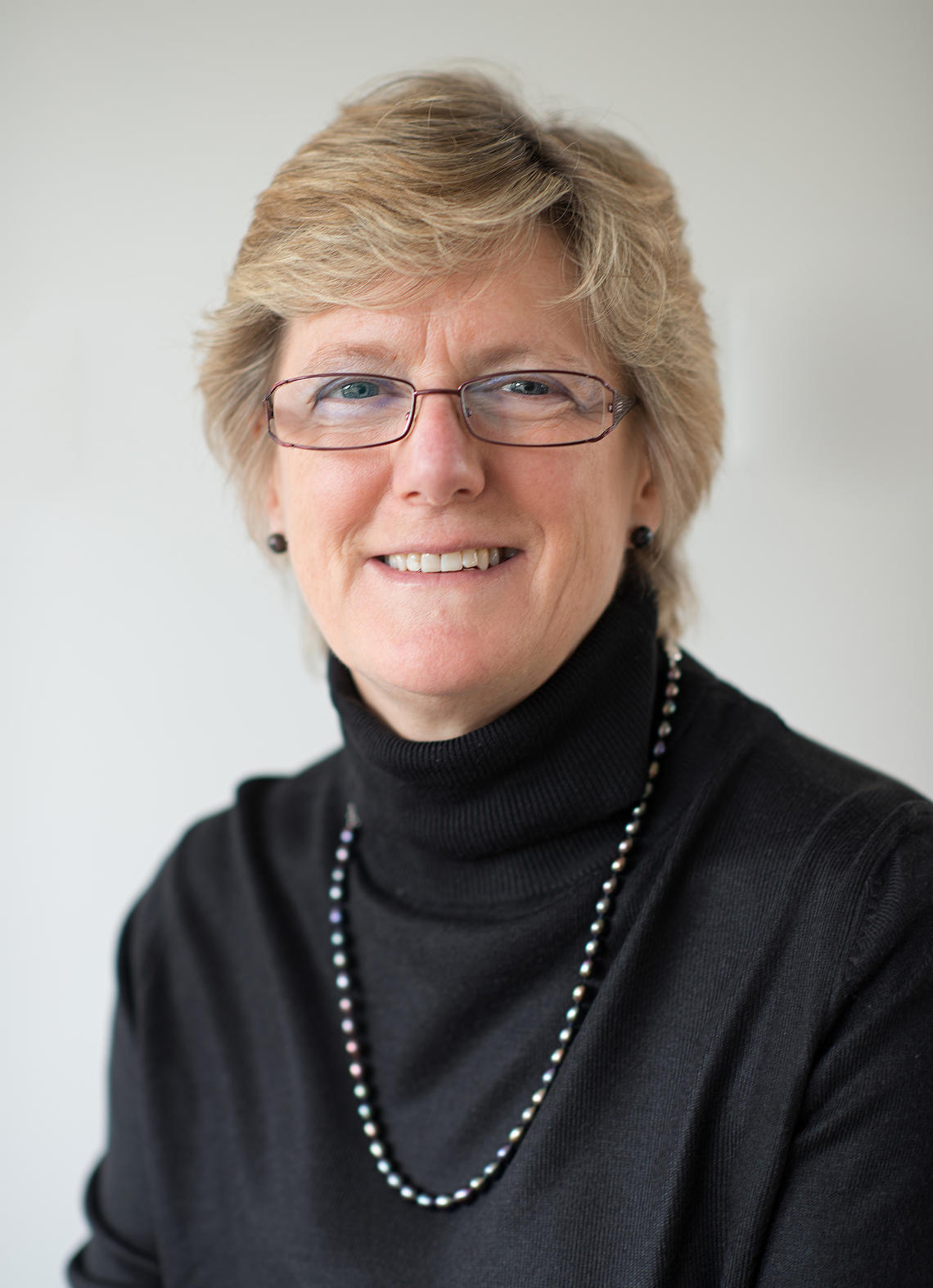Sept. 14, 2018
England's chief medical officer Sally Davies: 'We don't just need big data, we need big thinking'

England's chief medical officer Dame Sally Davies is the 2018 Cy Frank Legacy Lecturer.
Sally Davies
We’re living longer — that’s a fact. Canada has seen a 10-year increase in average life expectancy in the last 50 years. We’ve gone from living an average of 73 years in 1968 to 83 in 2018. On one hand, that’s good news. Who doesn’t want to live longer? But quantity doesn’t always mean quality.
“We are seeing disease profiles that are characterized by morbidity (sickness) rather than mortality (death),” said Professor Dame Sally Davies, chief medical officer for England, at a presentation at the Cumming School of Medicine on Sept. 12. “That means we are seeing more people live longer in ill health and an increasing burden on the health-care system. These changing patterns of disease mean we need a new approach to public health.”
The University of Calgary was one of three stops Davies made as this year’s Cy Frank Legacy Lecturer. The event was organized by the McCaig Institute for Bone and Joint Health, in honour of the late Dr. Cy Frank. Davies’ presentation focused on the role of big data in addressing “compression of morbidity,” or delaying the onset of disease, particularly musculoskeletal diseases.
“There’s huge scope for public health interventions to play a greater role in prevention. For example, we know that the onset of musculoskeletal diseases can be prevented through eating well, exercise and ergonomics,” said Davies. “All of these interventions require us to change — change as communities, change as nations.”
What is big data and how can it help?
Essentially big data means large quantities of data. But data doesn’t always come from a single source. For example, a tremendous amount of data is collected every time we see a doctor. From doctor’s notes and lab results to X-rays and scans — the amount of information on each patient is not only vast, but varied. And it’s being collected at an unprecedented rate.
But data is only valuable when we have the tools to extract meaning from it. “We need systems that can cope with the speed and volume of data generated and respond in real-time by processing and analyzing that data,” said Davies.
The United Kingdom recognized the potential of big data in health care and research and has invested millions in four key areas: personalized health care, diagnosis, understanding disease, and prevention. One example is their groundbreaking 100,000 Genomes Project.
100,000 Genomes Project
By 2003, thousands of dedicated scientists had deciphered the complete human genetic code, opening the door for discoveries that have transformed research and medicine. Launched in 2012, 100,000 Genomes Project is run by Genomics England, a company owned and funded by the Department of Health and Social Care. The project’s goal is to sequence the genome of 100,000 participants (patients with a rare disease, their families and patients with cancer).
“100,000 Genomes Project is producing amazing results. It has revolutionized our ability to produce data and link it with patients’ health records,” said Davies. “With this information, we are able to build individualized strategies for diagnostic or therapeutic decision-making, like predicting how well someone will respond to a particular treatment.” To date, the project has sequenced 81,179 genomes.
100,000 Genomes Project could not be delivered without the big data revolution. “It cost over £2 billion to sequence the first human genome, and it took 13 years to complete. Now we can sequence a human genome in a few days for less than £1,000,” said Davies.
The issue of trust
Despite the promise of big data to transform health care and research worldwide, there are some significant challenges. Perhaps the biggest challenge of them all is trust. Patients need to feel confident their data is not shared without their consent, and that their records are not identifiable when used for research.
“To build trust, we need more standards and transparency around how we use data,” said Davies. “It’s very important that patients be aware of, and have a say in, how data is used.”
What can Canada learn from the U.K.’s experience?
Clearly, the U.K. is a leader in leveraging data to deliver effective, evidence-driven care. And although it is still some way from full realization of the extraordinary potential of data, machine learning and artificial intelligence, Canada can learn from the U.K.’s experience. Davies suggests Canada focus on two areas: ensuring strict policies are in place regarding the sharing of health-related data, and funding.
“Research institutions are good at funding vertical, disease-specific, project-specific research. But what we urgently need are horizontal data infrastructures…that deliver more coherent, linked data structures,” said Davies. “We don’t just need big data, we need big thinking.”
The Cy Frank Legacy Lectureship honours and commemorates the late Dr. Cy Frank, an internationally acclaimed visionary who championed the application of research to create solutions for patients. The lectureship showcases individuals who reflect the passion of Dr. Frank.
